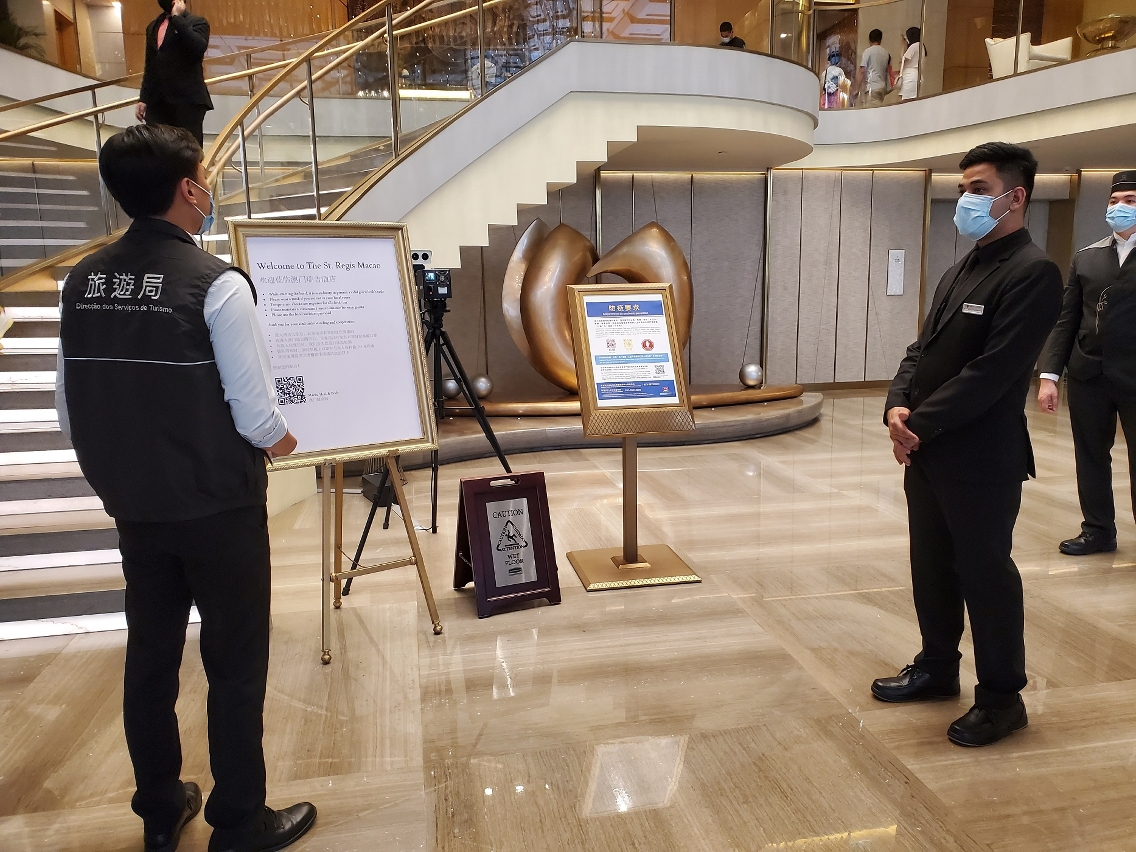 MGTO continues to deliver the functions of supervision and strives to steer hotel establishments towards provision of quality service
MGTO continues to deliver the functions of supervision and strives to steer hotel establishments towards provision of quality service
The Law No. 8/2021 on the Operation of Hotel Establishments is going to come into effect on 1 January 2022. With the new law in force, Macao Government Tourism Office (MGTO) takes a great step forward to optimize relevant procedures within the application of the law and deliver the functions of supervision lawfully. The new law also represents the Office’s efforts to steer hotel establishments towards provision of high-quality tourism services for residents and visitors and ensure Macao’s brand as a safe and quality destination.
New measures support diversification of lodgings for travellers
The Law on the Operation of Hotel Establishments not just clarifies the scope of application and scope of duties of the entities concerned but also optimizes the licensing procedures through introduction of streamlined licensing procedures in one stop and the mechanism of granting permission for temporary operation. In addition, hotel establishments no longer comprise categories of guest houses and tourism complexes. Instead, a new category of economical accommodation establishments is introduced, which comes with simpler requirements for necessary facilities. Economical accommodation establishments are also allowed to operate shared rooms and bed rentals. These new measures will support development of more diverse lodgings for travelers.
Refinement of regulations in sync with catering industry development
In terms of catering establishments, restaurants, bars and nightclubs are no longer divided into different classes, whereas two new categories are available, namely “simple catering establishments” and “catering stalls at food courts”, in parallel with catering industry development. Furthermore, the Law on the Operation of Hotel Establishments prohibits minors under the age of 18 from entering bars and nightclubs. Regarding public emergency referred to by the Civil Protection Law, the new law also stipulates that establishments must provide pertinent information to support implementation of civil protection acts, among other new requirements.
To facilitate enforcement of the new law, learning from past work experiences and taking into consideration the current operation format of the trade, the Administrative Regulation No. 44/2021 entitled “Enforcement Rules for the Law on the Operation of Hotel Establishments” is formulated to encompass refinements grounded upon the current Order No. 83/96/M dated 1 April. About to take effect in tandem with the Law No. 8/2021 on 1 January 2022, the administrative regulation governs license applications of hotel establishments, restaurants, simple catering establishments, catering stalls at food courts, bars and nightclubs. The regulation consists of six annexes, each specifying the technical requirements for the above establishments as well as the minimal area of kitchens and operating zones. The content of the new law and administrative regulation is available on the website of Macao Tourism Industry Net: https://industry.macaotourism.gov.mo/cn/license/services.php?page_id=16440&relevant=16440.
Before the new law comes into effect, MGTO organized online introduction seminars to elaborate the key points of the new law and deepen the trade’s understandingvia relevant promotional channels. MGTO hopes to maintain close collaboration with hotel industry operators and members of the tourism-related trade to foster diversification of the industry and optimize their service quality, extending warm hospitality to visitors and reinforcing Macao’s image as a safe, quality and glamorous destination under the framework of the Law on the Operation of Hotel Establishments.





